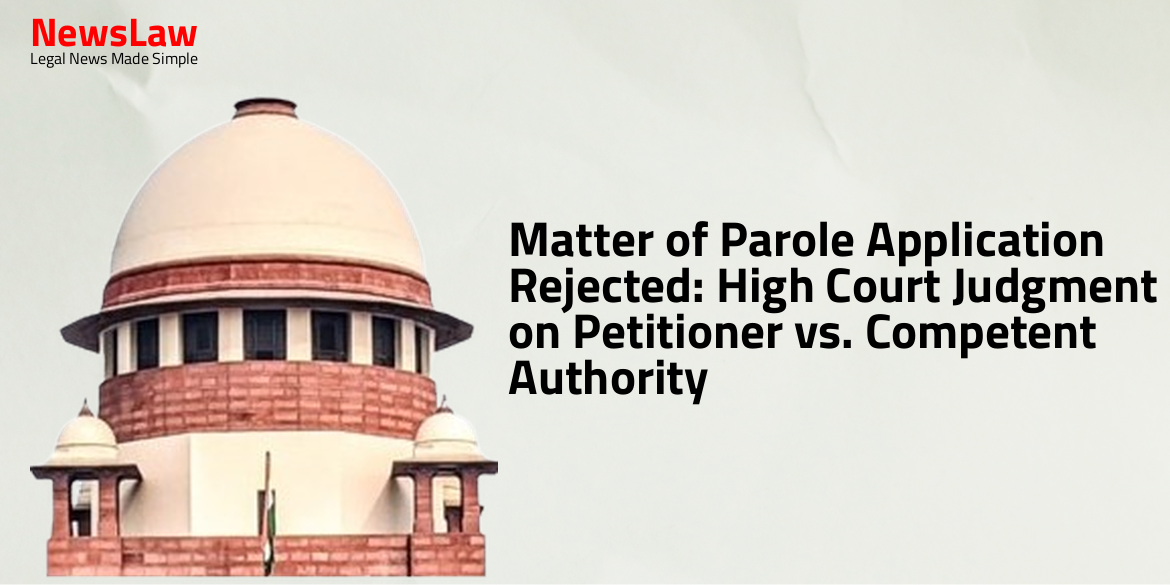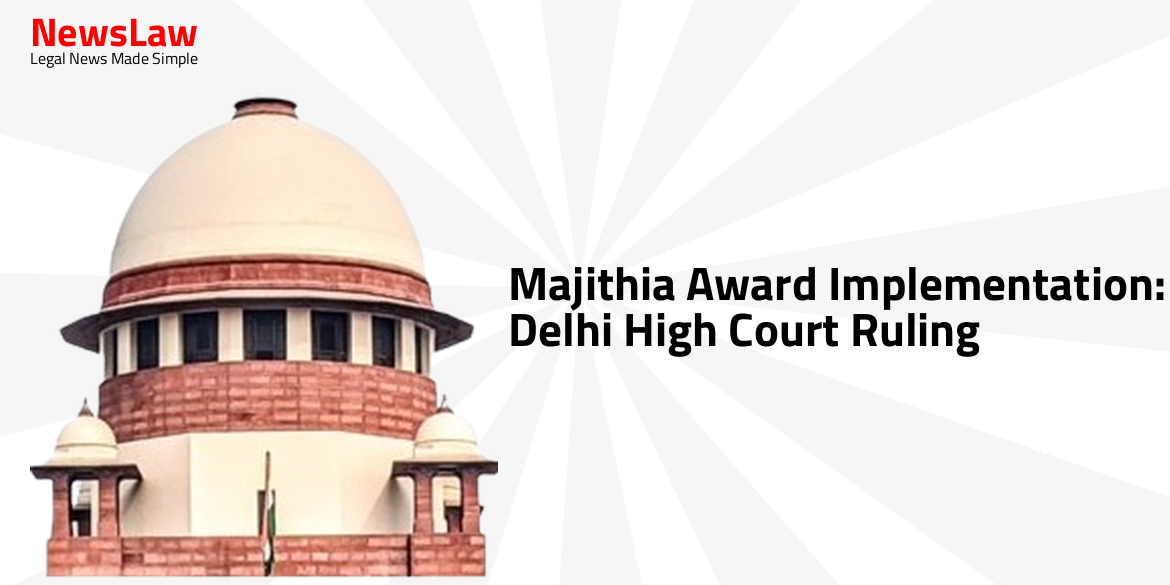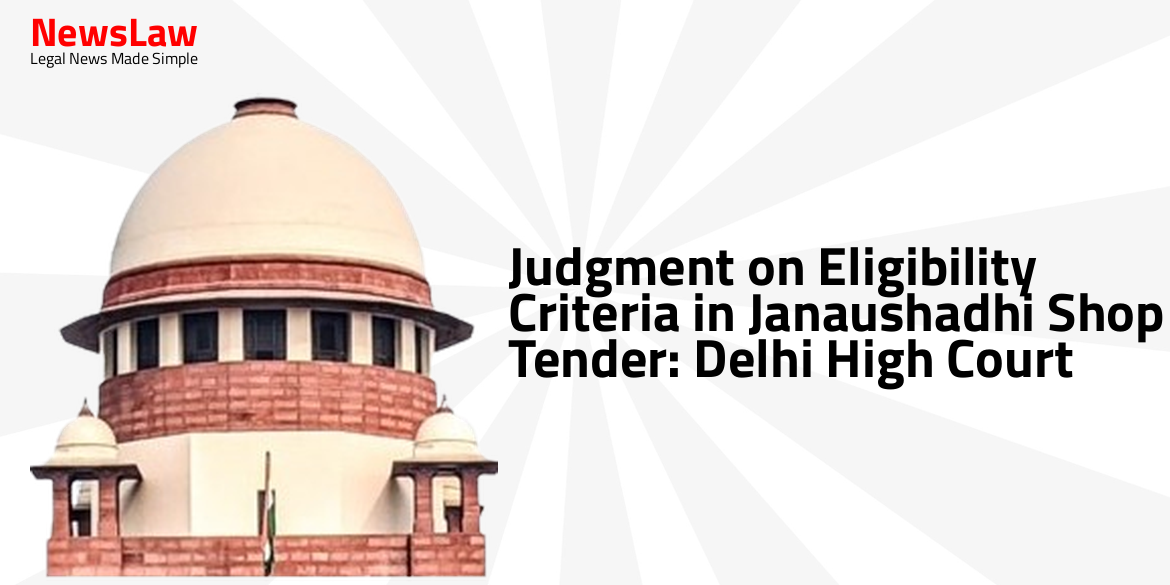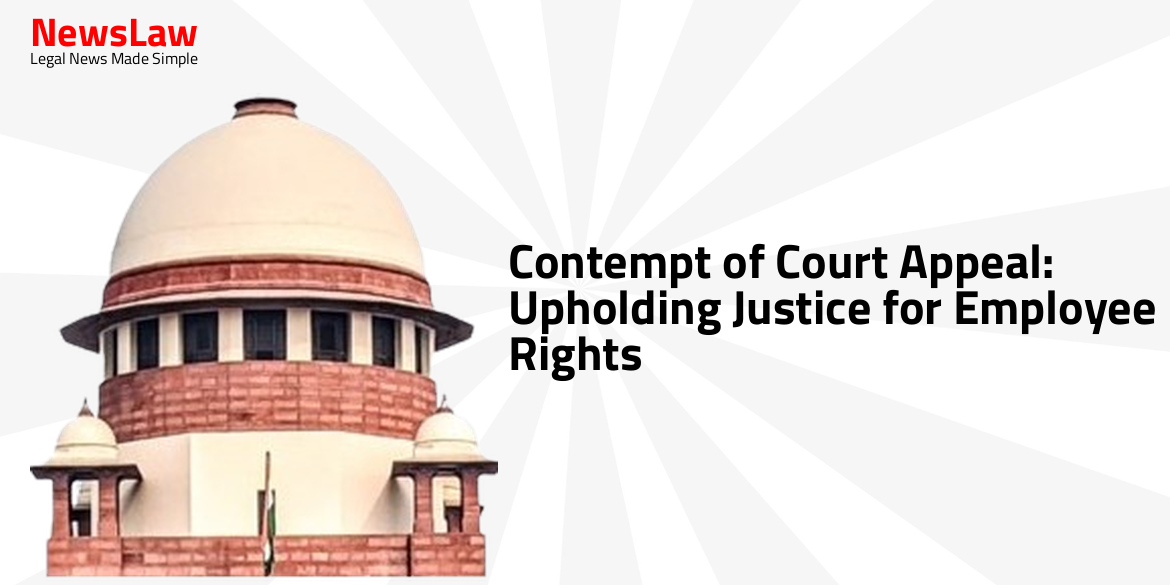In a recent legal judgment, the Delhi High Court has addressed the matter of a parole application rejection, involving the petitioner and the competent authority. The court’s decision has significant implications for the case at hand and sheds light on the complexities of the parole system. Stay tuned for more insights into this crucial ruling.
Facts
- The parole application bearing No. F.18/24/2023/HG/1695 filed by the petitioner was rejected by the competent authority.
- The petitioner sought the issuance of a writ in the nature of mandamus to direct the respondent to release him on parole.
Analysis
- The request for grant of parole for the convict has been rejected by the Hon’ble Lt. Governor of Delhi.
- The rejection is based on the convict not meeting the criteria outlined in Rule 1210 sub rule (I) of Delhi Prison Rules-2018 regarding good conduct.
- The nominal roll indicates that the convict’s conduct has been satisfactory in the last year.
- Co-convicts are ordinarily not granted simultaneous parole unless in exceptional circumstances and with written reasons.
- The overall jail conduct of the convict is reported to be unsatisfactory.
- The Superintendent of Central Jail No-14, Mandoli has not recommended parole for the convict.
- The convict’s sole recourse for challenging the conviction is through filing an SLP with the Hon’ble Apex Court.
- Specific rules regarding parole extension, gap between parole and furlough, and simultaneous parole for co-convicts are highlighted.
- Despite availability of legal aid in jail, the convict should be afforded the opportunity to pursue legal remedy through filing an SLP.
- Rule 1210 sub rule (II) requires good conduct for last two years for major punishment and one year for minor or no punishment.
- Rule 1208 allows filing of SLP before the Hon’ble Apex Court as a ground for seeking grant of parole.
- Courts have consistently emphasized the right of a convict to file a Special Leave Petition challenging the dismissal of their criminal appeal by a High Court as a crucial right.
- Bharat Bhardwaj, a co-convict, sought parole and was granted parole.
- The parole was granted on the basis of filing a Special Leave Petition through a Writ Petition numbered W.P. (CRL) 1736/2023.
Decision
- The petitioner must provide a telephone/mobile number to the Jail Superintendent and SHO for contact.
- Upon the expiration of the parole period, the petitioner must surrender before the Jail Superintendent.
- The petitioner will be released on parole for four weeks after his co-convict Bharat Bhardwaj surrenders.
- Conditions for parole include furnishing a personal bond, reporting to the SHO weekly, and staying within the National Capital Territory of Delhi.
- A copy of the Special Leave Petition (SLP) must be provided to the Jail Superintendent at the time of surrender.
- The period of parole starts from the day of release from jail.
- The judgment must be uploaded on the website immediately.
- The petitioner must ensure the provided telephone number remains active at all times.
Case Title: AMIT GULIA @ ANDAL Vs. STATE OF NCT OF DELHI (2024:DHC:4534)
Case Number: W.P.(CRL)-1896/2023



